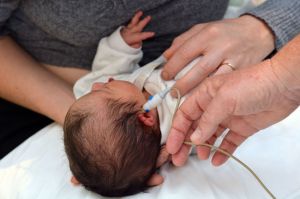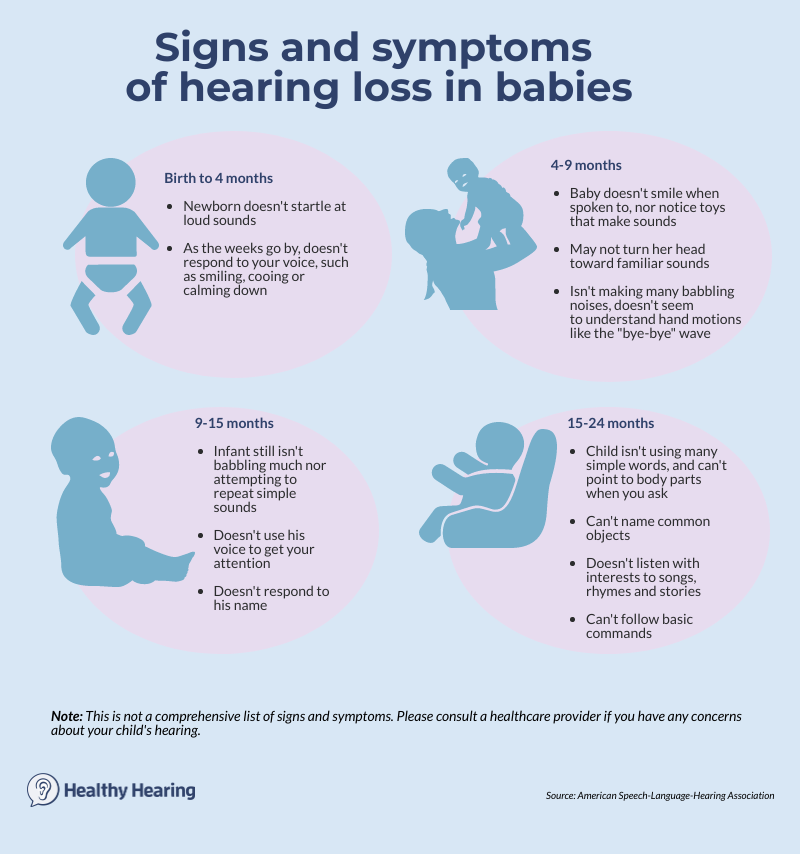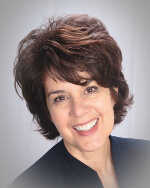|
www.HealthyHearing.com |
Newborn hearing screeningWhat to expect and why it's important
Contributed by Debbie Clason, staff writer, Healthy Hearing Key points:
In the U.S., nearly all newborn babies receive a hearing screening soon after birth. This is required by Early Hearing Detection and Intervention laws, which now exist in all 50 states. About 2 or 3 out of every 1,000 babies born have some degree of hearing loss, according to the U.S. Centers for Disease Control and Prevention. Newborn screenings ensure that hearing loss in infants is detected and treated early. For parents, the process can be a bit unsettling, especially if your baby's initial test results require follow-up. It's normal to feel some anxiety and to have a lot of questions. With that in mind, let's look at how newborn screening works, and what it may mean if your child needs additional testing: How newborn hearing screening works
and painless. The most important thing to know is that newborn hearing screenings are safe and comfortable. Many infants sleep through the entire procedure, which takes a few minutes. The two most common tests your newborn may receive:
Your baby may have both tests together, or just one of the tests. Hospitals determine which tests they use based on costs, personnel and the number of babies born. (If your child was born at home, you should can schedule an appointment with a pediatrician, local audiologist, or hospital or clinic to perform a screening.) According to EHDI programs, babies should receive this screening before one month of age. Next steps if your baby needs additional testingIf your infant doesn't pass the initial hearing screening, it's important schedule a follow-up screening with a pediatric audiologist within a couple of weeks. Many different things can cause inconclusive results, including fluid in the ear, which may still be present in the ear canal right after birth. A follow-up visit for further testing will help determine whether or not your infant does have hearing loss, to what degree, and whether or not it is permanent and/or in need of treatment. Your pediatrician also may recommend seeing a specialist or a geneticist to determine if you baby's hearing loss is hereditary. If your baby is a preemieBeing born early puts a baby an increased risk for developing hearing loss, particularly if born before about 32 weeks. Newborns admitted to the NICU have hearing loss at a rate of 3 to 6 out of every 100, much higher than the national average. If your child was born prematurely, it may be important to seek follow-up audiological testing even if the first newborn screening came back as normal. Some problems may not develop until later. Be sure to speak with your pediatrician to discuss follow-up hearing care options. Treating hearing loss in babiesIf hearing loss is confirmed, hearing aids are often the next step. Experts recommend doing this as quickly as possible, while your child is still an infant. Hearing devicesOne of the most common ways to treat hearing loss is with pediatric hearing aids or a cochlear implant. Hearing aids can be used for mild to severe hearing loss, while cochlear implants are used for those with profound hearing loss. A hearing health professional can help you determine which option is best for your child. Language and communicationIn addition to hearing devices, your child may learn language and communication with one of the following methods:
A speech language pathologist and/or audiologist can help with these different communication methods. Why newborn hearing screening is importantYour baby’s sense of hearing is a crucial piece of their overall development. The earlier hearing loss is detected, the sooner your family can enroll in age-appropriate intervention programs. According to the American-Speech-Language Hearing Association (ASHA), untreated hearing loss can cause delays in speech and language communication skills, which affect academic performance and may lead to social isolation and low self-esteem. Children who receive treatment and/or learn American Sign Language (ASL) are statistically better equipped to develop the language skills they need to succeed in school and the work environment. Follow-up screenings by three months of age confirm whether a baby is deaf or hard of hearing and provide enrollment into early intervention programs by 6 months of age. And, thanks to the Individuals with Disabilities Education Act (IDEA), all children who have hearing loss are entitled to receive free services throughout their education to age 21.
Remember: Hearing loss can develop laterWhile newborn screening is important, it may not detect mild hearing loss. It also can't detect hearing loss that develops later. If your child is missing any hearing milestones, such as not recognizing her name or not responding to your voice, seek out help.
Looking for a hearing pediatric hearing specialist near you?If you're looking for a pediatric hearing specialist, take a look at our directory of hearing experts to find a provider near you. Keep in mind, that not all practices may offer services for children, so be sure to ask before making an appointment. Debbie Clason, staff writer, Healthy Hearing
|
Featured clinics near me
Earzlink Hearing Care - Reynoldsburg
7668 Slate Ridge Blvd
Reynoldsburg, OH 43068

Find a clinic
Need a hearing test but not sure which clinic to choose?
Call 1-877-872-7165 for help setting up a hearing test appointment.



 Debbie Clason holds a master's degree from Indiana University. Her impressive client list includes financial institutions, real estate developers, physicians, pharmacists and nonprofit organizations.
Debbie Clason holds a master's degree from Indiana University. Her impressive client list includes financial institutions, real estate developers, physicians, pharmacists and nonprofit organizations.